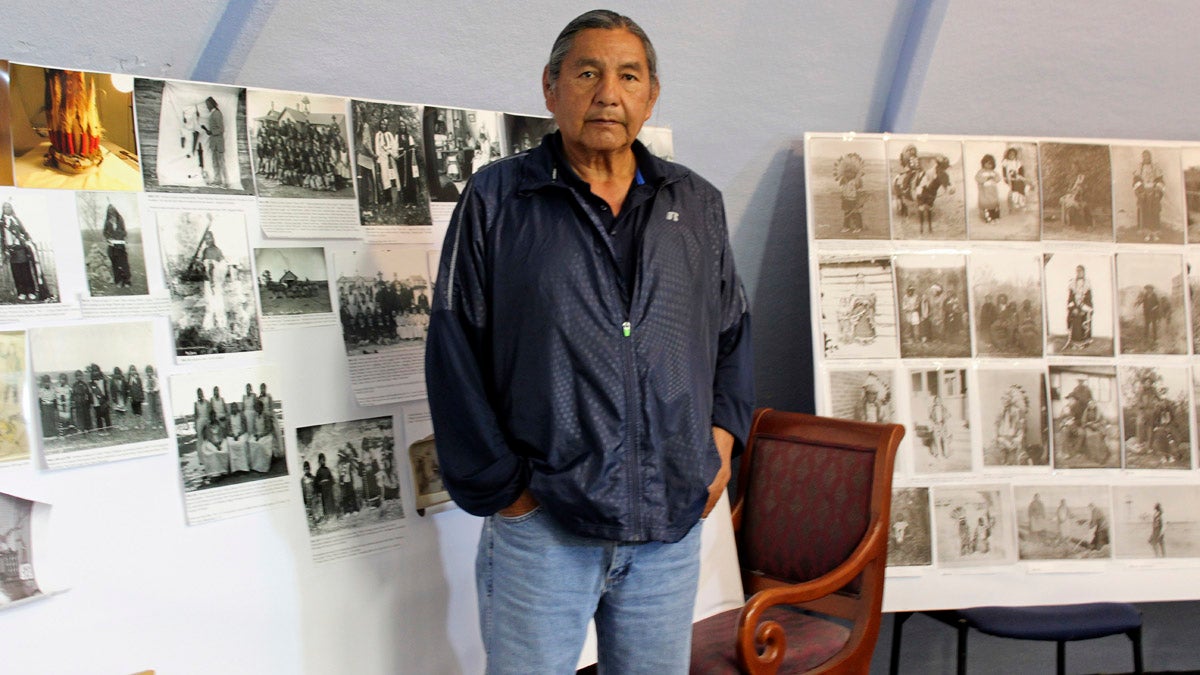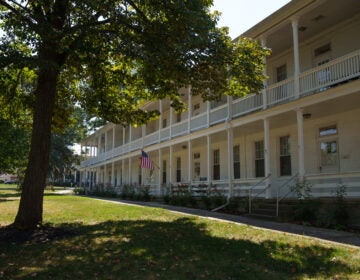Two Native American boys’ remains uncovered in Pa., third stays buried

Russell Eagle Bear, a member of the Rosebud Sioux Tribe, has also looked into claiming the remains of some of his tribe's children who died at the Carlisle School. (AP file photo)
After a painstaking exhumation in Cumberland County, Pennsylvania, the remains of two Native American boys who died in the 1880s have been returned to their next of kin in Wyoming.
But all did not go as planned.
Remains of a third boy were also supposed to make the journey back West, but couldn’t be uncovered due to a mismarked grave.
Little Chief, 14, Horse, 11, and Little Plume, 9, arrived together at the Carlisle Indian Industrial School. They were part of a nationwide program to forcibly assimilate Native American children. Students’ hair was cut, and they were forced to speak English.
Now, 130 years later, Horse and Little Chief are returning home with the Northern Arapaho tribe, who will bury them at the Wind River Reservation.
But Little Plume — the youngest — will not.
Anthropologists discovered the coffin under his headstone contained the remains of two people — neither one a 9-year-old boy.
“My assistant and I — we looked at the remains, and we just knew. We just knew,” said Elizabeth DiGangi, the anthropologist tasked with analyzing the remains. “That was really difficult, knowing that the families were 50 feet away, and I was about to have not very good news for them.”
It fell to lead archaeologist Michael Trimble to tell the tribe members, in what he said was a difficult conversation.
The group sat under a tree in the cemetery, Trimble said, and talked for more than an hour.
“By the end of the conversation, they comforted me,” he said. “I was very upset that we couldn’t — with all the science we have today, and all the techniques we have, that doesn’t mean there’s always a silver bullet for everything.”
The Northern Arapaho boys were among 181 students buried at the school in Carlisle, which is now home to the U.S. Army War College.
Army representatives said they’re communicating with other tribes, and more exhumations may be arranged.
WHYY is your source for fact-based, in-depth journalism and information. As a nonprofit organization, we rely on financial support from readers like you. Please give today.





